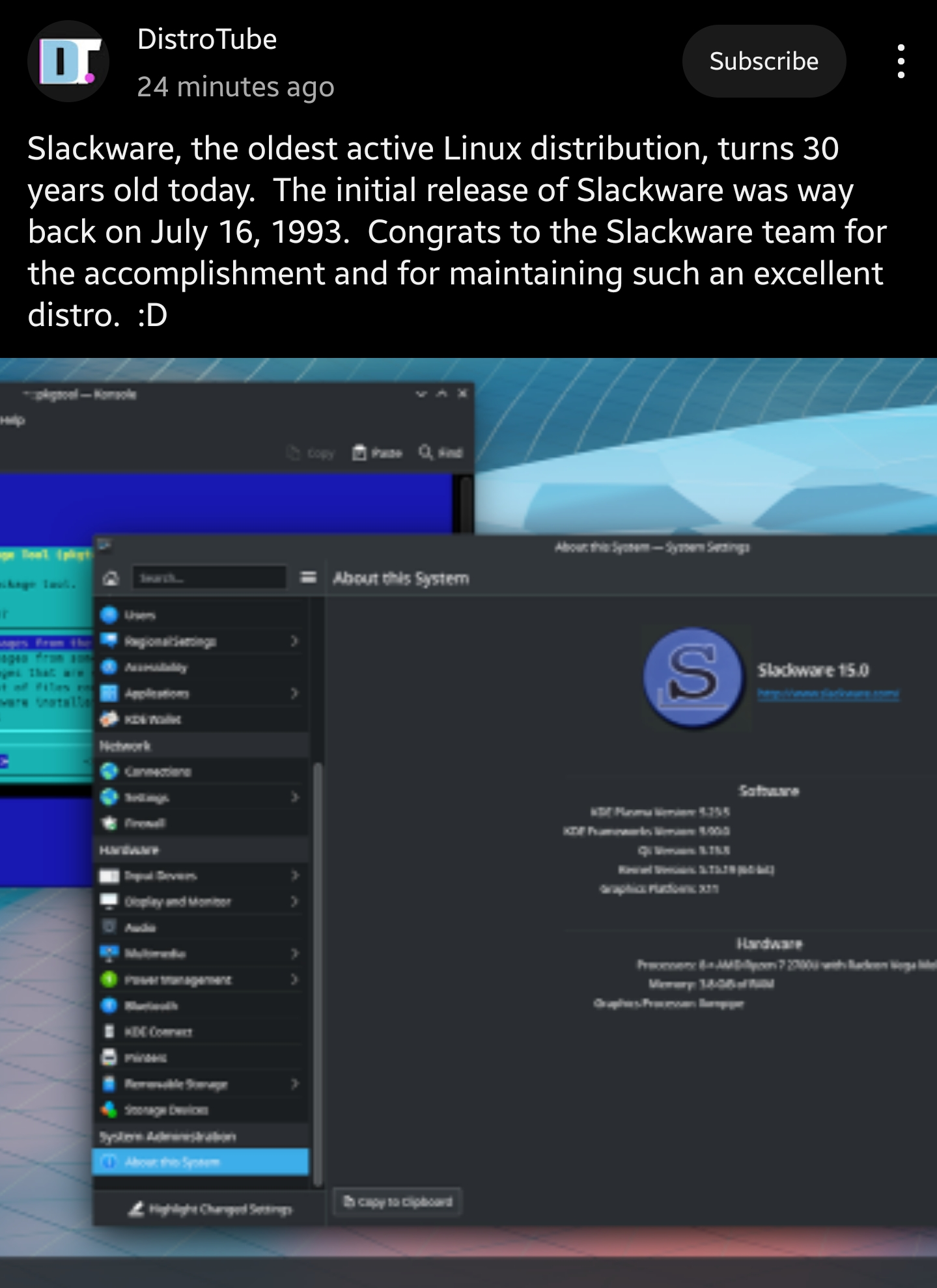this post was submitted on 16 Jul 2023
903 points (98.7% liked)
Linux
48332 readers
512 users here now
From Wikipedia, the free encyclopedia
Linux is a family of open source Unix-like operating systems based on the Linux kernel, an operating system kernel first released on September 17, 1991 by Linus Torvalds. Linux is typically packaged in a Linux distribution (or distro for short).
Distributions include the Linux kernel and supporting system software and libraries, many of which are provided by the GNU Project. Many Linux distributions use the word "Linux" in their name, but the Free Software Foundation uses the name GNU/Linux to emphasize the importance of GNU software, causing some controversy.
Rules
- Posts must be relevant to operating systems running the Linux kernel. GNU/Linux or otherwise.
- No misinformation
- No NSFW content
- No hate speech, bigotry, etc
Related Communities
Community icon by Alpár-Etele Méder, licensed under CC BY 3.0
founded 5 years ago
MODERATORS
you are viewing a single comment's thread
view the rest of the comments
view the rest of the comments

I love Slackware but it really is a relic of days gone past (not in a bad way but a nostalgic way).
Back when Slackware launched you didn't just download an .iso file and gigabytes of updates/new software from repositories like you do now. The internet was far too slow and data caps too restrictive to download anything serious. This was a time where even RPM-based distributions didn't have a package manager with proper dependency management. RPM hell was a thing and even Apt was ahead of its time when it came out. You also didn't have the internet to find information as you know it now, you used HOWTO guides if you were lucky or you actually read the man pages and liked it.
Instead of repositories you downloaded from, you ordered a stack of floppies or CDs via snail mail and you just installed and used whatever software was on them. You would only download additional software if you absolutely needed it, usually on the universities network or from others at your LUG. You might have even gotten CDs on the cover of a magazine, that's how I got a copy of Red Hat and tried that distro for the first time back in the day. If you were really lucky your ISP would have a quota-free FTP server you could slowly get stuff from but that only became a thing here post-2000.
A nice, curated stack of CDs like Slackware was the absolute bomb in these times and something you got if you were absolutely serious about running Linux on your PC. Having a set was practically a status symbol around other like-minded nerds and being lent them to make a copy was like being gifted their firstborn child. Ubuntu for one became popular partly because of their program to send CDs out to anybody anywhere in the world free of charge, usually with some free merch included to boot, that's how much we all relied on physical CDs themselves.
Today however, I wouldn't actively choose to run Slackware anymore. Like the internet itself and mailing physical media, distros have moved on to bigger, better things and unfortunately beyond nostalgia Slackware hasn't kept up. These days distros like Arch Linux provide a similar nostalgia hit with more modern tools and functionality at your disposal.